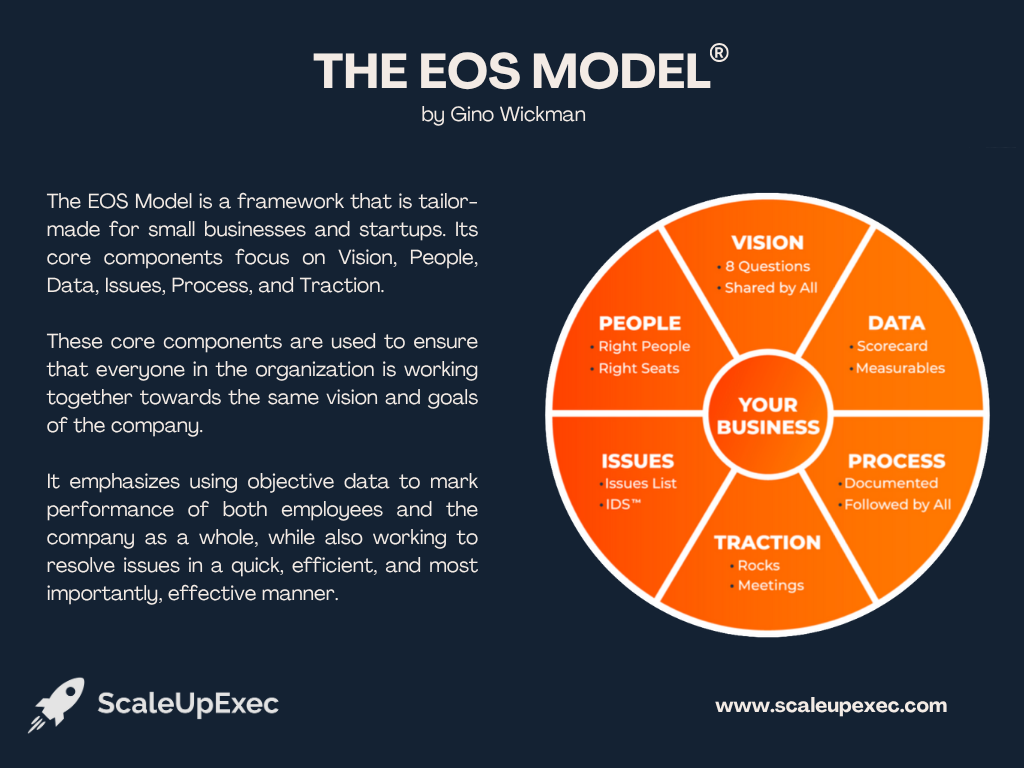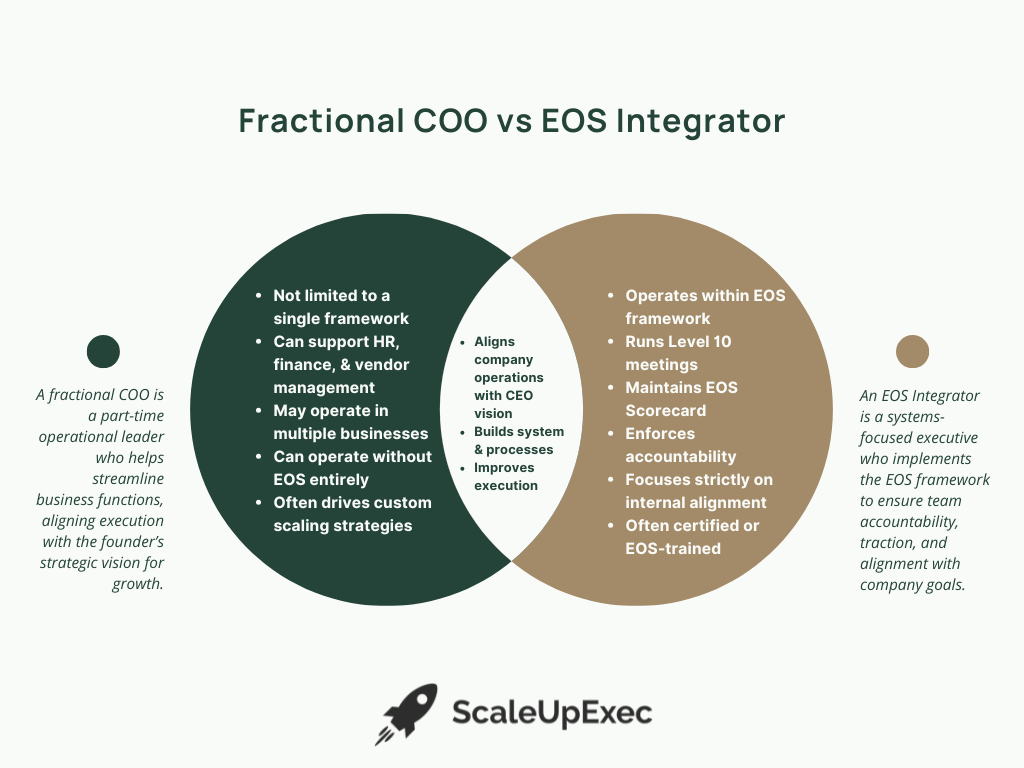As companies grow, operational clarity becomes essential. Two popular solutions often emerge at this stage: the Fractional COO and the EOS Integrator. While both roles aim to improve execution, alignment, and team accountability, they take different approaches. One is based on flexible executive leadership and the other is rooted in a defined operational system.
This article breaks down the distinctions between these roles, where they overlap, and how to determine which is better suited to your company’s current phase and culture.
Understanding the Roles
What Is a Fractional COO?
A fractional Chief Operating Officer provides hands-on leadership on a part-time basis, which is typically between 1 to 4 hours per day. Their role is to drive execution of the CEO’s vision, optimize operations, and guide strategic growth. Fractional COOs are often senior operators with experience scaling businesses across a range of industries. They’re systems thinkers who tailor their approach to the needs of each company and bring structure, accountability, and clarity without being bound to a single framework.
What Is an EOS Integrator?

An EOS Integrator is responsible for implementing the Entrepreneurial Operating System (EOS), which is a structured set of tools and disciplines designed to help leadership teams gain traction. The integrator works closely with the founder or Visionary to translate high-level goals into operational focus. This includes facilitating Level 10 meetings, managing scorecards and metrics, and enforcing accountability across the organization through clearly defined roles and processes.
EOS is particularly effective for small and midsize businesses looking for consistency and alignment. It provides a turnkey playbook, but also requires strict adherence to its methodology.
Where They Overlap and Where They Don’t
Similar Goals, Different Tools
Both fractional COOs and EOS Integrators aim to bring alignment, focus, and operational rigor to an organization. However, the way they approach this work differs significantly.

Fractional COO: Broad, Adaptive Leadership
A fractional COO has the flexibility to design systems and processes around the unique needs of your company. Their scope typically includes operations, finance, HR, product, and vendor management. These are areas that often fall outside the EOS model. Because they’re not tied to a fixed framework, they can draw from a broader range of tools and experiences to solve complex problems and support growth.
EOS Integrator: System-Focused Execution
The EOS Integrator, by contrast, is focused on strict implementation of the EOS methodology. Their role revolves around cadence and discipline and ensure that your team follows the system, meets regularly, tracks KPIs, and resolves issues using the EOS framework. They are typically less involved in areas like financial modeling, hiring plans, or product operations, unless those functions tie directly to EOS processes.
Which Role Is Right for You?
If your company is already running on EOS—or plans to adopt it soon—then hiring an experienced Integrator may accelerate adoption and help your team stay on track. EOS can be transformative when followed properly, and a dedicated integrator ensures consistency.
On the other hand, if your organization requires more customized leadership or operates in a complex environment where EOS alone may not be sufficient, a fractional COO can provide broader support. They often work alongside founders to implement scalable systems while also managing areas like budgeting, hiring, vendor relationships, and product ops.
Can They Be the Same Person?
In many cases, yes. Some fractional COOs are well-versed in EOS and can serve as both COO and Integrator. However, not all EOS Integrators have the broader strategic or operational range of a COO.
As your business grows in complexity, you may find that a dual-role executive is no longer sufficient. In these cases, having both a fractional COO and an EOS Integrator can create a powerful operating rhythm—one focused on vision and structure, the other on daily execution and alignment.
Final Thoughts: Align the Role With the Need
Ultimately, the right choice depends on your operating model, team maturity, and growth goals. EOS can be a strong foundation for teams that benefit from structure and predictability. A fractional COO is ideal when flexibility, customization, and deeper operational leadership are required.
In some cases, the best path forward is a hybrid approach combining the structure of EOS with the adaptability and experience of a fractional COO. The key is ensuring your leadership structure evolves as your business does.
Schedule a Discovery Call to explore how the right operational leadership can support your next stage of growth. Our affordable fractional coo consulting services are deeply versed in running EOS frameworks while maintaining the flexibility to customize, adapt, and improve based on your company’s unique needs and goals.






